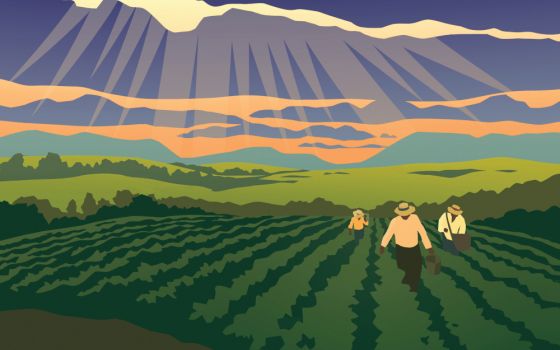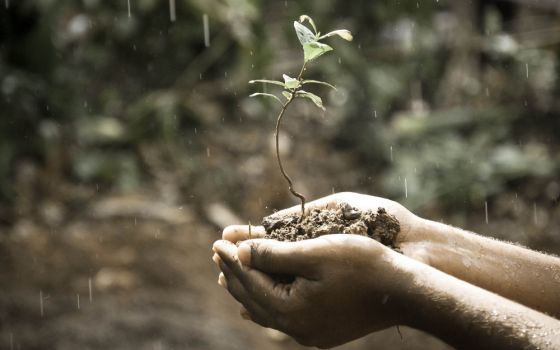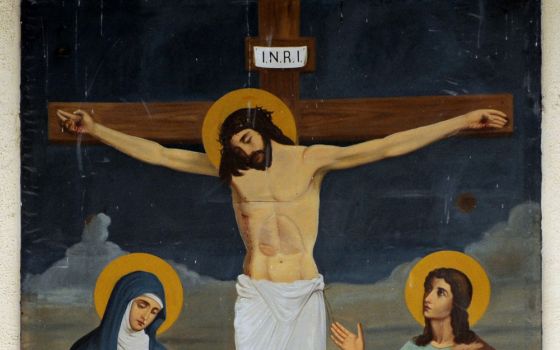
"Gleaners" by Jean-Francois Millet. (Wikimedia Commons/Public domain)
PAUSE
REFLECT
"When you reap the harvest of your land, you shall not reap to the very edges of your field, or gather the gleanings of your harvest. You shall not strip your vineyard bare, or gather the fallen grapes of your vineyard; you shall leave them for the poor and the alien: I am the Lord your God." – Leviticus 19:9-10
"And Ruth the Moabite said to Naomi, 'Let me go to the field and glean among the ears of grain, behind someone in whose sight I may find favor.' She said to her, 'Go, my daughter.'" – Ruth 2:2
Gleaning is a practice described in the bible in which food that fell during the harvest was left on the ground so that people who were hungry could collect, or glean, the leftover produce in order to have their fill to eat. The right to glean was protected by law so that all people could be fed.
What are some contemporary forms of gleaning you might practice this Lent to prevent food waste and make sure that all are fed?
GIVE
"Glean" through your refrigerator each Friday during Lent, and use "what was left," or leftovers, to make a snack or meal to share with someone who would appreciate it.
If you're at a university and have extra meal swipes, offer to share a meal with a classmate who does not have a meal plan, or use Share Meals, a free app that empowers college students to easily and instantaneously share extra food with each other, whether it's an extra meal swipe or food from events and meetings.
Lenten Daily Food Reflections
pause | reflect | act
Editor's note: These daily reflections on food, faith, climate and our lives will provide spiritual sustenance for the Lenten journey. They are inspired by the Lenten Food Waste Fast at the Ignatian Solidarity Network.
Advertisement







